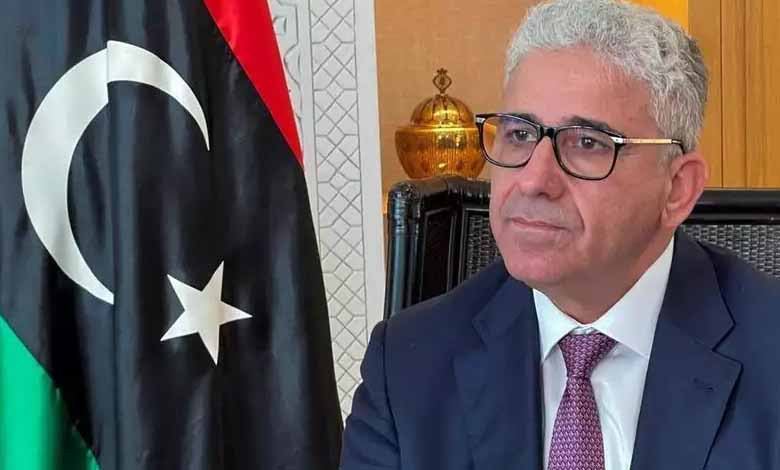Bashagha is making accusations against Dbeibeh, and violent clashes in the capital, Tripoli

Fathi Bashagha, the head of Libya’s parliamentary government, said: “It is not possible to compare an authority created by a Libyan-Libyan consensus through legitimate and elected legislative institutions with an extralegal gang that uses civilians in the capital as human shields for political extortion”.
In a post on Twitter, Bashagha added: “His government is the product of the agreement between the House of Representatives and the State Council in accordance with the Libyan political agreement concluded in 2015 in Skhirat”, he said, adding that “he continues to support this agreement and to adhere to peaceful political solutions”. He called on all Libyans to adhere to what brings them together until presidential and parliamentary elections are held simultaneously.
Bashagha’s statement came in response to a statement made by Tunisian President Kais Saied following a meeting with Najla Mangoush, in which he stressed the need to reach a Libyan-Libyan solution that preserves Libya’s unity and stability.
Bashagha accused the government of Abdul Hamid Dbeibeh of using civilians as human shields for political blackmail, describing it as an outlawed group.
He tweeted yesterday: “There is no comparison between the power of a Libyan consensus through legitimate and elected legislative institutions and an outlawed group that uses civilians in the capital as human shields for political extortion”.
This came as clashes broke out yesterday between the Stability Support Agency militia, led by Abdel Ghani al-Kakli, loyal to the national unity government led by Abdul Hamid Dbeibeh, and the al-Nawasi battalion, which supports the government of Fathi Bashagha, the two largest militias in the capital Tripoli.
Local sources said: “The clashes broke out in the Souq area and the Shatt road, to the dismay of citizens who quickly fled nearby areas, according to videos circulated on social media, which also documented the firing of hand grenades and rocket-propelled grenades from both sides, the rising of thick smoke between buildings, and the sound of gunshots”.
The reasons for these clashes are not yet known, but they are likely related to the ongoing conflict between the Dbeibeh and Bashagha governments, which was a result of the consequences of Bashagha’s attempt to enter the capital Tripoli three weeks ago with the support of the Nawasi militia, which led to an outbreak of fighting between the Tripoli militias.
This ongoing security tension in Tripoli reflects the magnitude of Libya’s dilemma, with two governments competing for power and armed militias controlling the capital Tripoli and western cities playing a major role.












